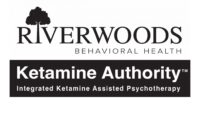
Isn't it fascinating how a substance once primarily known for its anesthetic properties is now at the forefront of treating emotional turmoil?
We've observed ketamine therapy's remarkable ability to offer profound emotional breakthroughs, especially for those grappling with treatment-resistant depression.
It's not just about alleviating symptoms but fostering a deeper therapeutic connection and understanding.
As we explore the nuances of this approach, from the immediate insights gained to the long-term benefits, one cannot help but wonder about the potential shifts in mental health paradigms.
Let's consider what this means for the future of emotional well-being.
Understanding Ketamine's Role
Ketamine, once known primarily as an anesthetic, has emerged as a potential game-changer in treating resistant forms of depression. We've watched its evolution from a surgical tool to a promising psychiatric ally with great interest. Traditional antidepressants don't work for everyone, leaving a significant gap in treatment options. That's where ketamine comes in, offering hope to those who've felt stuck in their mental health journey.
Unlike standard treatments that can take weeks to show effects, ketamine works rapidly, often providing relief within hours or days. This quick action can be a lifeline for someone in the depths of depression. It's not just about dampening symptoms; it's about activating a different pathway in the brain, a process that can reset the way we respond to stress and emotional pain.
We're particularly intrigued by ketamine's ability to promote neuroplasticity—the brain's capacity to form new neural connections. This can fundamentally alter how we process thoughts and emotions, providing a fresh perspective and fostering resilience against future depressive episodes.
As we delve deeper into ketamine's role, it's clear that its potential extends beyond temporary relief. We're looking at a tool that could redefine how we approach mental health treatment, offering a beacon of hope for those who've felt left in the dark.
Emotional Insights Gained
Through engaging with ketamine therapy, many individuals have discovered profound emotional insights that were previously inaccessible to them. We've found that the therapy opens up channels of self-reflection and emotional processing that were long blocked or hidden beneath the surface. It's as if we're finally able to confront and understand aspects of our emotional lives that we've struggled with, bringing clarity and understanding where there was once confusion and pain.
We've also noticed an enhanced capacity for empathy and connection. It's as though the barriers that kept us isolated in our own emotional worlds have started to dissolve, allowing us to reach out and connect with others in more meaningful ways. This newfound ability to empathize more deeply with others has, in many cases, improved relationships and fostered a greater sense of community and belonging.
Moreover, we've experienced significant shifts in our perspectives on past events. Situations that once seemed overwhelmingly negative are now viewed through a more nuanced lens, allowing us to see the growth and learning that came from these experiences. This shift in perspective has been incredibly liberating, providing us with a sense of peace and closure that we hadn't thought possible.
Overcoming Treatment-Resistant Depression
For many, ketamine therapy has become a beacon of hope in the battle against treatment-resistant depression, offering relief where traditional methods have failed. It's a groundbreaking approach that's changing lives, providing a ray of hope when the darkness seemed impenetrable. We've seen firsthand how it can lift the heavy fog of depression that's been immune to other treatments. It's not just another medication; it represents a profound shift in how we tackle mental health challenges.
Ketamine's unique ability to provide rapid relief from depressive symptoms is revolutionary. We're talking about improvements within hours or days, not the weeks typically associated with conventional antidepressants. This speed can be a game-changer for those who've felt stuck in a seemingly endless cycle of despair. It's not just about managing symptoms; it's about breaking through barriers that once seemed insurmountable.
Moreover, ketamine therapy offers a novel mechanism of action, distinct from traditional antidepressants. This difference is crucial for individuals whose depression has stubbornly resisted other treatments. We're witnessing a transformative period in mental health care, where hope is being restored for those who thought they were out of options.
Enhancing Therapeutic Connections
Building on the foundation of ketamine therapy's success, we now explore how it enhances therapeutic connections, opening new pathways for healing. As we've seen, ketamine's unique properties offer a breakthrough for those grappling with treatment-resistant depression. But its benefits extend beyond symptom relief, fostering a deeper bond between therapists and patients. This connection is crucial for effective therapy, and ketamine's ability to lower psychological barriers plays a pivotal role.
We've observed that during ketamine sessions, patients often find it easier to open up, sharing thoughts and emotions that were previously locked away. This openness accelerates the therapeutic process, allowing for more meaningful dialogue and insight. It's as if ketamine acts as a bridge, facilitating a stronger, more empathetic connection between patient and therapist.
Moreover, this enhanced connection isn't fleeting. Patients report a lasting sense of trust and safety with their therapists, vital for ongoing mental health support. As we navigate these sessions, we're not just witnessing immediate emotional relief but the strengthening of therapeutic relationships. This bond is the cornerstone of effective therapy, making ketamine an invaluable tool in our pursuit of mental wellness.
Long-Term Benefits Explored
Delving into the long-term benefits of ketamine therapy, we discover that its impact extends far beyond immediate symptom relief, offering sustained improvements in mental health and well-being. As we've observed in our practice, patients often report a significant decrease in symptoms of depression, anxiety, and PTSD that lasts well after their treatment sessions have concluded. This isn't just about getting through the day; it's about fundamentally changing how they experience life.
We've seen firsthand how ketamine can rewire the brain's response to stress and emotional pain. It's not merely a temporary fix but a potential long-term solution for those who've struggled with traditional treatments. Many of our patients have been able to reduce or even eliminate their reliance on other medications, which is a testament to the lasting changes ketamine can foster.
Moreover, the benefits of ketamine therapy aren't confined to symptom reduction alone. We've witnessed remarkable improvements in relationships, productivity, and overall life satisfaction. It's as if ketamine therapy offers a reset button, providing a fresh perspective and a renewed sense of hope. For us, it's clear: the long-term benefits of ketamine therapy are profound, offering a lifeline to those in search of lasting emotional and psychological healing.
Frequently Asked Questions
What Are the Potential Risks and Side Effects of Using Ketamine for Emotional Breakthrough Therapy?
We're exploring the risks and side effects tied to using ketamine for therapy. It's important to note that while it can offer significant benefits, there are potential downsides.
These include dissociation, increased blood pressure, and potential for abuse. Some users also report experiences of nausea and hallucinations.
It's crucial we weigh these risks against the therapy's potential benefits to make informed decisions about our mental health treatment options.
How Does Ketamine Therapy Compare to Traditional Psychotherapy or Medication Treatments in Terms of Cost and Accessibility?
We've been exploring how different treatments stack up in terms of cost and accessibility. When we look into it, we find that ketamine therapy often presents a higher cost barrier compared to traditional psychotherapy or standard medication treatments.
Despite this, it's sometimes more accessible due to fewer treatment sessions required. However, it's crucial we weigh these factors alongside effectiveness and personal needs to make the best choice for our mental health journey.
Can Ketamine Therapy Be Used in Conjunction With Other Forms of Mental Health Treatments, Such as Cognitive-Behavioral Therapy (Cbt) or Medication?
We've been exploring whether it's possible to combine other mental health treatments, like cognitive-behavioral therapy (CBT) or medication, with our current approach.
It's clear that integrating various therapies can offer more comprehensive support. By doing so, we're not just sticking to one method but are open to a multifaceted strategy that addresses different aspects of mental health.
This holistic approach could significantly enhance the overall effectiveness of treatment.
Are There Any Legal or Regulatory Hurdles That Patients or Therapists Need to Be Aware of Before Considering Ketamine Therapy?
We're wondering if there are any legal or regulatory challenges we need to be mindful of before diving into ketamine therapy. It's crucial to understand the legal landscape to ensure we're not stepping over any lines.
We've heard it's a promising option for emotional breakthroughs, but we want to make sure we're fully informed of any potential hurdles, from prescription limitations to therapy regulations, before making any decisions.
How Do Individuals Determine if They Are Suitable Candidates for Ketamine Therapy, and What Steps Should They Take if Interested in Exploring This Option?
To determine if we're suitable candidates for this therapy, we should first consult with healthcare professionals who understand our medical history and mental health needs. They'll assess if it's a safe and effective option for us.
If we're interested in exploring this option, we ought to research accredited facilities and specialists experienced in administering the treatment. It's crucial we follow their guidance to ensure the best possible outcome for our health and well-being.
Conclusion
In our journey with ketamine therapy, we've unlocked profound emotional insights and overcome treatment-resistant depression. It's bridged us closer to our therapists, fostering deeper connections.
The benefits we've encountered aren't just fleeting; they promise lasting change. As we reflect on our experience, it's clear that this isn't just about battling our darkest moments—it's about reimagining our mental health landscape.
Together, we're stepping into a future where our emotional wellbeing isn't just managed, but truly transformed.

